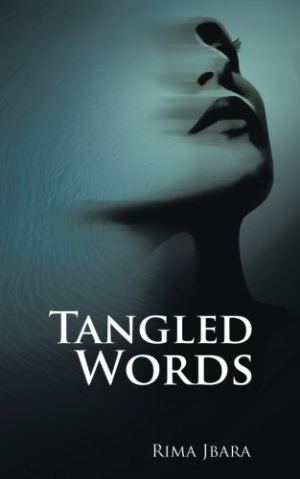Tangled Words
Tangled Words is an everywoman’s story about sisterhood and creativity that’s innovative in its format.
Rima Jbara’s novella Tangled Words reflects the intertwined fates of archetypal twin sisters.
Twin sisters Eternity and Rain are opposite sides of the same coin. Eternity is ever the optimist, and Rain grows more pessimistic the older she gets. As different as they are, the twins are united against their overbearing father in defense of their fragile mother. They also both dream of writing careers, though just when they are on the cusp of fame, tragedy turns into an opportunity.
With a structure that supports its themes, this short book contains many pages that are blank save for titles. Its opening segment, “The Naked Truth,” introduces Eternity and Rain in contrasting phrases, framing them as concepts before it’s obvious that they are characters. They develop as characters in relation to the strictures that bind and define them.
The second part of the book, “Parts of Our Script,” is sequenced like a movie in which Eternity and Rain are the actors. They transcend their roles in the book’s later chapters, which are not a part of the script. Section headings—“Misfits,” “Consequences,” “Hysteria”—describe their lives, and in these segments, Eternity and Rain enact a scheme to get their writing to the public.
Complementing each other, Rain is weighed down by difficulties; Eternity sees every difficulty as an opportunity. This is reflected in their writing, as Rain writes about feelings as they are, while Eternity works to inspire new ways of thinking and acting. These differing artistic outlooks are embodied in the two women, who are attached by their sisterly love, and the result is both refreshing and romantic.
Eternity’s and Rain’s combined stories are victorious in the face of burdensome structures, both authentic and familiar. The meandering pace of their stories picks up toward the book’s end, with a stream of active episodes in which Eternity and Rain grow into wives, lovers, and published writers, both with distinct desires, using their gifts to undermine those who try to hold them down.
Passion fuels the prose, and even conversations are driven by outbursts and declarations, rather than clear or tradition back-and-forths. The book’s regimented framework is heavy in contrast to the pithy, emotional, and poetic narration, though, and typos and misspellings dot the pages, diffusing the power of the words.
Tangled Words is an everywoman’s story about sisterhood and creativity that’s innovative in its format.
Reviewed by
Mari Carlson
Disclosure: This article is not an endorsement, but a review. The publisher of this book provided free copies of the book and paid a small fee to have their book reviewed by a professional reviewer. Foreword Reviews and Clarion Reviews make no guarantee that the publisher will receive a positive review. Foreword Magazine, Inc. is disclosing this in accordance with the Federal Trade Commission’s 16 CFR, Part 255.


